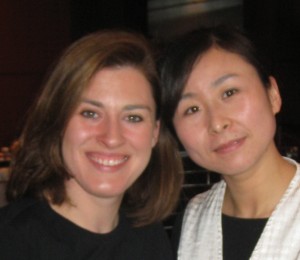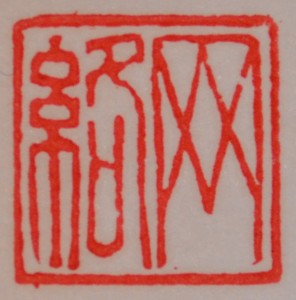
Ni hao! I write this post sitting in an airplane, sipping Chinese tea, somewhere over the East China Sea on my way to Hong Kong with Marc and Ian, having just spent a week touring Beijing and Shanghai. Once again, I have evidence that human beings – irrespective of our histories, cultures, backgrounds – require personal connections in order to establish community and deepen our sense of self and belonging.
It’s been a wonderful trip so far… the quality time I am getting with my guys is priceless and I’m grateful beyond measure. Despite (smugly) feeling rather worldly, I’ve never been to this part of the world and now have both a better appreciation for life in China (at least from a big city perspective – Beijing boasts 22 million citizens; Shanghai, a cool 24 million) – for the history, tradition and symbology it represents and a renewed belief that meaningful connections truly make the world go ‘round.
Our Imperial Tours guide in Beijing, Leon, quickly became a friend caring for us like family; sharing his knowledge, personal background and ideas with us; even dining with us (sounds funny, but that was not part of his original plan! Isn’t it interesting how breaking bread with one another draws people together?). One comment Leon made really stuck with me. Without even knowing of my interest in developing networking relationships, he said, “You must design your own life – don’t just take what others create for or give to you. To do so, it is important to develop connections. For example, now, to keep in touch with my classmates from university, we have microblogs so we can keep up with what people are doing.” Yep. Same is true back home.

Then there was May Li, a darling young woman who is a server in our hotel restaurant, with whom I instantly felt a sense of connection. Each morning, she greeted us warmly, asked about our plans for the day and complemented Ian on his expert use of chopsticks (“A very important skill,” as she put it). She told me how she was eager to return to her home town to visit her mother for Chinese New Year coming up in a few weeks’ time (“I moved to Beijing to marry… Chinese girls always miss their mommies back home.”). Her sweetness and kindness, her interest in our lives, her desire to learn more English (she humbly said her English was poor… you’d never know it… her English beats the heck out of my Mandarin any day of the week)… they were wonderful ways to start each day. I felt sad to bid her farewell and hope to see her again someday as I’m sure we would be fast friends. Again, human touch.
In Shanghai, we met Dvar, an Israeli journalist living in Shanghai for the last several years. He shared stories with us about the history he’s discovered of the local Jewish community over the centuries and about a project he is working on to locate headstones from four long gone Jewish cemeteries bearing more than 4,000 graves that have all but disappeared (he has located just over 100 headstones and has collected about 90 of them). He said that everything he’d encountered during his time in China – be it the history or his own relationships – was about business and that the way business gets done is the result of who one knows. For example, he wants to build a memorial from the stones, but, as he described it, needs the proper, influential connections, or “guanxi,” in order to acquire permission to do so. It’s clearly been a labor of love for him and, based on his drive and spirit, I’m thinking he just might get it done! He’s been building relationships with the “right” people and, eventually, I anticipate he will be able to build the memorial he has in mind.
Our official Shanghai guide was Jamie, a kind, patient, extremely knowledgeable fellow who is a veritable fount of information on a plethora of topics. He, too, not surprisingly talked about relationships. As he recalled clients to whom he had served as a guide, he believed it was the nature of their interactions, the way they conducted themselves, their ability to connect with others that left their mark. He talked about individuals’ influence through their networks and connections as a form of currency – currency used in order to get things done in China as a direct result of having established and maintained authentic relationships. With this, it was Jamie who confirmed for me that networking – that is, building meaningful, long-term relationships – is as important in China as it is in the United States as it is the world over.
If guanxi is doing favors for one another, “wang luo” is Coffee Lunch Coffee style networking. Literally, “net” and “work,” wang luo is about establishing deep, personal connections with people. For me, that’s what this trip has been about and, I hope, will continue to be about as it wraps up in Hong Kong.
Relationships. That’s what makes this net work! Xièxiè.

Sounds like you are having a great time. Happy Net Work and New Year:)
Looking forward to hearing all about your trip!! Happy New Year 🙂
I’m impressed how quickly you grasped the “deep secret” of Chinese business world, Guanxi. Love it!
Thank you, Sheen! Loved connecting with you earlier this week. Looking forward to talking with you more. Cheers! -Alana